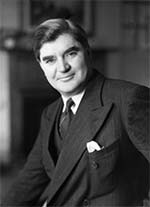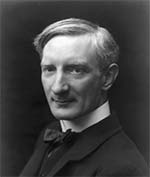Tuesday, 22 July 2025

The University of the Third Age meeting report
Life in the NHS - it only hurts when I laugh
Speaker: Jeff Jacklyn
The guest speaker at the u3a Todmorden July members meeting was Jeff Jacklyn, who presented 'Life in the NHS - it only hurts when I laugh'
Jeff is a retired IT Director who served for 30 years in a number of NHS hospitals up and down the country.
He said that the aim of his presentation was to tell us three things; why was the NHS established, what were the main parts of it, and how were the objections to it (including some surprisingly from the general public) overcome?
Audience participation was welcomed throughout the talk, and Jeff asked if any members present had worked in the NHS at some time or other. He had asked this on previous occasions, and the average number was fifteen – today there were twenty previous employees.
On the theme of numbers, we heard that around one million and three hundred and thirty thousand people worked in some aspect of the NHS these days, and four hundred thousand of them were nurses. Each day, throughout the country, Accident and Emergency departments deal with 92 thousand people. 250 thousand people attend outpatients department and 73 thousand people NHS dental practices each week.
Sadly, there are nearly four thousand patients who occupy hospital beds because they are unable to live at home, or be looked after, in other ways. Over 83 thousand of the population go to see an NHS doctor every weekday, and over 20 thousand contact the NHS non- emergency phone service for advice and help each day.
Jeff mentioned a survey when he worked at Huddersfield Hospital. One question asked participants what their main complaint, if any, about the NHS was. He passed the question on to today's audience. The answer for both groups of people was the same – hospital car parking.
But the public have what Jeff described as a special relationship, or connection with the NHS. He gave an example of the period when Covid affected the country, along with many others in the world. The NHS Covid response is widely recognized for the "Clap for Carers" campaign, which involved weekly applause for front-line workers, including NHS staff, during the initial lockdown. This public display of support demonstrated appreciation for their dedication during the pandemic.
Jeff was born in 1947, some months before the NHS came into being and told us that before he was born his mother had never been treated, or seen, by a doctor. The reason was that she could not afford to. Three of her sisters died in infancy before she was born.
He recalled being at school, and in a queue of other children – sleeves rolled up – in a queue to the headmaster's office and having an injection. By this time, the NHS had been established by the then Labour government. Such vaccinations played a huge part of protection from conditions such as smallpox and diptheria. Other memories were of some of his school friends wearing leg braces, having contracted polio or similar diseases.
As an aside, he told us about when his thirteen-year-old granddaughter asked for help with her homework. He told her that his parents were unsure whether they could start a family, and the risks involved. The girl wrote about an imaginary conversation between Jeff's parents who discussed whether or not they would have a baby, and could they afford it. Jeff read what she had written, which included his mum and dad worrying about having enough money to buy a car seat for their child – in 1947!
Most, if not all, of the audience already knew that the NHS was established in the 1940s, not long after the end of World War Two. But we might not have been aware of the opposition from three groups.
Rich people who could already pay their own medical expenses, who thought they would be heavily taxed to pay for other people's health care.
Doctors who thought that their income would be affected by free care, and that they would also lose money on medicines and treatments which would be provided at no cost to patients by the NHS.
The main objection from the general public was that, for all of their difficulties, they were part of a proud nation. They were not used to or, perhaps, trusting, something for free. But their view may well have changed when their own relatives returned home from service in the war. There was also pressure from the servicemen and women who had been injured in the conflict and still needed treatment and medication for the short term, or even the rest of their lives.
 It was clear that the effects of the second world war such as injuries to servicemen and women, the general public and people still dying and being affected by disease had to be dealt with. The Labour Government of the time and particularly Aneurin Bevan, who became known as 'the father of the NHS', managed to overcome the objections and concerns.
It was clear that the effects of the second world war such as injuries to servicemen and women, the general public and people still dying and being affected by disease had to be dealt with. The Labour Government of the time and particularly Aneurin Bevan, who became known as 'the father of the NHS', managed to overcome the objections and concerns.
The doctors could work in the NHS and, at the same time could continue to deal privately with patients, the well-off people could continue to pay their private doctors or use the NHS.
 In the same period, Sir William Beveridge produced a report, which laid the foundation for the UK's post-World War Two welfare state. He proposed a system of social insurance to combat poverty and its related issues, including want, disease, ignorance, squalor, and idleness, often referred to as the "five giants".
In the same period, Sir William Beveridge produced a report, which laid the foundation for the UK's post-World War Two welfare state. He proposed a system of social insurance to combat poverty and its related issues, including want, disease, ignorance, squalor, and idleness, often referred to as the "five giants".
The National Health Service started on the 5th July 1948 at no cost to the public, including prescriptions, dental care, and spectacles. The aim would be to deliver 'comprehensiveness, universality, and free at the point of delivery'.
This didn't, and couldn't, be sustained and the costs and conditions were revised several times including charges for dental and optical care
Prescription charges were introduced then abolished thirteen years later, and reintroduced three years after that. England is the only country in the British Isles where they apply – but possibly not for a fair proportion of the audience this afternoon.
Another positive of the NHS service today is the relaxation of visiting hours, aside from the car parking issue. Jeff mentioned that in the early 1950s, child patients could only be visited by relatives for one hour on Saturdays and Sundays. Contrast this with today where, locally, visitors are welcome on most wards every day and able to stay far longer.
Perhaps more importantly, the NHS played a big part in worldwide health improvement, working on vaccines, medicines and techniques.
Jeff reminded us how fortunate we are to have the NHS in this country with one of his visual aids.
This was a film clip from the 2014 Labour Party Conference, featuring a speech made by ninety-one years old Harry Smith from Barnsley – which can be found on YouTube – who lived for many years before the NHS was founded. Harry described his childhood as a 'barbarous, bleak and uncivilised time because public healthcare didn't exist ..back then hospitals, doctors and medicine were for the privileged few because they were run by profit rather than vital state service that keeps a nation's citizens and workers healthy'
Our members enjoyed an informative, humorous and varied presentation and showed their appreciation at the end of Jeff's talk.
Not yet a member? We're always delighted to welcome new members. Contact details: website at www.u3atod.org.uk or email at info@u3atod.org.uk.
Many thanks to Colin Sanson for this report
Previous U3A reports on the HebWeb - click here

